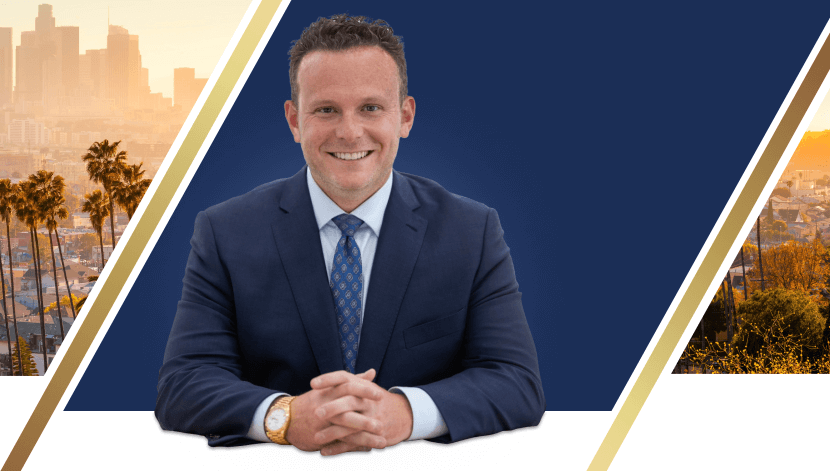The legal system doesn’t always treat people with mental health conditions fairly. If you or one of your loved ones is dealing with a mental health-related legal issue, a mental health lawyer can help you resolve it.
Legal issues can be overwhelming, especially when they involve mental health. But you don’t have to handle the legal process alone.
Over the past 20 years, Simmrin Law Group has represented thousands of clients. If you or someone you love is struggling with a legal problem related to mental health, an Inglewood mental health lawyer can provide the advocacy you need to achieve a favorable outcome.
What Does a Mental Health Lawyer Do?
A mental health lawyer specializes in cases where mental health plays a significant role. They advocate for clients facing criminal charges, custody disputes, or other legal issues related to their mental well-being. Key responsibilities of a mental health lawyer include:
- Protecting the rights of individuals with mental health conditions
- Ensuring clients receive fair treatment within the legal system
- Advocating for mental health diversion (when appropriate)
A mental health lawyer in Inglewood can advocate for you throughout the legal process.
For a free legal consultation with a mental health lawyer serving Inglewood, call (310) 896-2723
Common Types of Mental Health Cases
Mental health lawyers handle a wide range of cases, including:
- Criminal defense: Advocating for clients charged with crimes influenced by mental health conditions.
- Civil commitments: Assisting individuals facing involuntary hospitalization.
- Guardianship and conservatorship: Helping families establish legal arrangements for loved ones with severe mental health challenges.
- Employment discrimination: Representing individuals who face workplace discrimination due to their mental health.
If you’re facing any of these issues, a mental health attorney in Inglewood can provide invaluable support.
Inglewood Mental Health Lawyer Near Me (310) 896-2723
What is Mental Health Diversion?
Mental health diversion is a legal program designed to provide treatment for individuals with mental health conditions instead of enforcing traditional punitive measures.
In California, the Mental Health Diversion Act (Penal Code Section 1001.36) allows eligible defendants to receive treatment instead of proceeding with a standard criminal trial.
Click to contact our Mental Health Lawyers today
How Does Mental Health Diversion Work?
Mental health diversion typically involves these steps:
- Assessment: A mental health professional evaluates the defendant to determine if they meet the criteria for diversion.
- Court approval: The defense attorney presents a motion to the court, requesting mental health diversion.
- Treatment plan: If approved, the individual enters a structured treatment program, which may include therapy, medication, and other mental health services.
- Completion and dismissal: Upon successful completion of the program, the charges may be dismissed, leaving the defendant with a clean record.
Complete a Free Case Evaluation form now
Who is Eligible for Mental Health Diversion?
Several factors determine eligibility for mental health diversion, including:
- Diagnosable condition: The defendant must have a diagnosable mental health condition that’s listed in the Diagnostic and Statistical Manual of Mental Disorders (DSM).
- Link to behavior: The mental health condition must have played a significant role in the alleged criminal behavior.
- Public safety: The court must determine that the defendant poses no unreasonable risk to public safety.
- Treatment value: A mental health professional must confirm that the defendant would benefit from treatment.
Examples of qualifying conditions include schizophrenia, bipolar disorder, and PTSD.
Who Does Not Qualify for Mental Health Diversion?
While mental health diversion can be beneficial, certain individuals may not qualify, including:
- Defendants charged with serious or violent felonies
- Individuals whose mental health conditions do not directly influence their alleged criminal behavior
- Those deemed a significant threat to public safety
A mental health lawyer can help determine your eligibility.
How Can a Mental Health Diversion Lawyer Help Me?
A mental health diversion lawyer can help with the following:
- Case evaluation: A lawyer can assess whether you qualify for diversion based on your circumstances and available evidence.
- Building a strong case: An attorney can gather medical records, expert testimony, and other supporting evidence to demonstrate your eligibility.
- Court advocacy: A lawyer can present your case in court and ensure your rights and interests are well-represented.
- Monitoring compliance: An attorney can help you meet all of the requirements of your diversion program and ensure you stay on track throughout the process.
A mental health diversion attorney’s expertise can mean the difference between incarceration and rehabilitation.
Can I Go to Jail for a First-Time Offense in Inglewood?
Yes, it’s possible to go to jail for a first-time offense in Inglewood, depending on the nature of the crime. However, alternatives such as mental health diversion, probation, or community service may be available. A skilled mental health lawyer can argue for leniency and explore options that can help you avoid jail time.
Can a Mental Health Attorney Get My Charges Dropped?
While outcomes vary from case to case, a mental health attorney can significantly improve your odds of getting your charges reduced or dismissed. Through diversion programs or plea agreements, your attorney can negotiate with the prosecution to achieve a favorable resolution.
Successful completion of a mental health diversion program often results in the dismissal of charges, which can allow you to move forward without a criminal record.
Speak with a Mental Health Lawyer in Inglewood Today
If you or someone you care about is struggling with a legal issue related to mental health, don’t fight the battle alone. An Inglewood mental health attorney from Simmrin Law Group can take on your case and provide guidance and support throughout the legal process.
Schedule a free consultation today to take the first step toward resolving your case.
Call or text (310) 896-2723 or complete a Free Case Evaluation form

